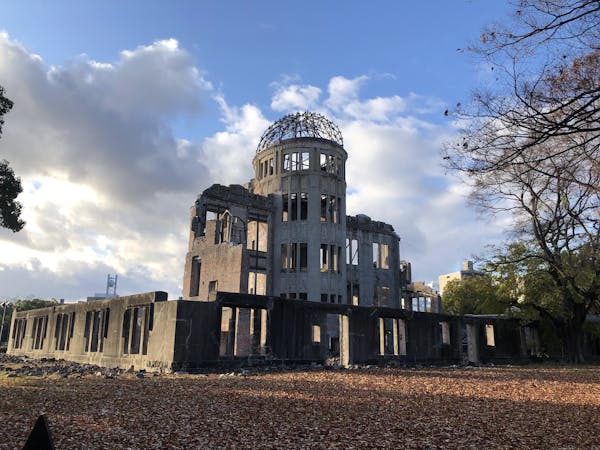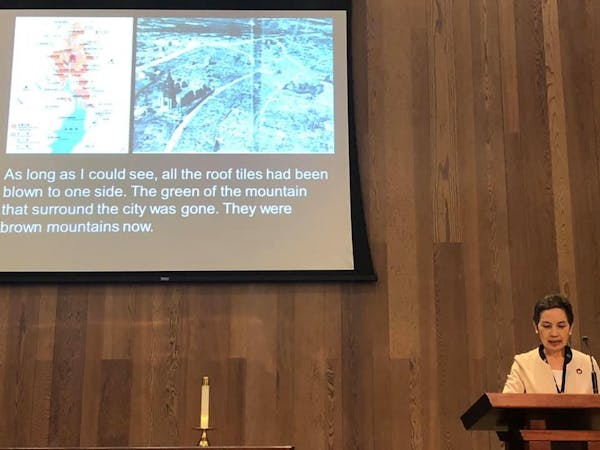80 years in the past, in August 1945, the towns of Hiroshima and Nagasaki had been incinerated by means of the first and only use of nuclear weapons in battle. By means of the tip of that while, approximately 140,000 people had died in Hiroshima and 74,000 in Nagasaki.
Those that survived – referred to as Hibakusha – have carried their struggling as dwelling testimony to the horrendous humanitarian aftereffects of nuclear battle, with one key want: that no person else will suffer as they have.
Now, in 2025, as the sector marks 80 years of remembrance since the ones bombings, the voices of the Hibakusha do business in no longer most effective reminiscence, but additionally ethical readability in an presen of rising peril.
As anyone who specializes in nuclear disarmament and has heard Hibakusha testimonies in my local Jap language, I’ve been enthusiastically selling disarmament schooling grounded of their voices and revel in. I imagine their message is extra important than ever at a date of emerging nuclear chance. Nuclear warnings have reemerged in international discourse, breaking long-standing taboos towards even speaking about their significance. From Russia and Europe to the Middle East and East Asia, the opportunity of nuclear escalation is now not unthinkable.
Universal History Archive/Universal Images Group via Getty Images
Japan’s deepening reliance on deterrence
Paradoxically, expanding nuclear warnings are contributing to additional reliance on nuclear deterrence, the method of forestalling assault by means of threatening nuclear retaliation, in lieu than renewed efforts towards nuclear disarmament, which seeks to do away with nuclear guns fully.
Nowhere is that this contradiction extra visual than in Japan. Age the Hibakusha have lengthy stood as global advocates for nuclear abolition, Japan’s way to nationwide safety has positioned growing emphasis on the role of nuclear deterrence.
Within the face of regional warnings, the Jap executive has strengthened its dependence on U.S. nuclear protection – even because the survivors of Hiroshima and Nagasaki warn no longer most effective of the risks of depending on nuclear guns for safety, but additionally of the profound moral failure such reliance represents.
Concentrate to Hibakusha voices
For 8 many years, the Hibakusha have shared their tales to block era tragedy – to not assign blame, however to evoke moral sense and spark motion.
Masako Wada, associate secretary common of Nihon Hidankyo, a national group of atomic bomb survivors operating for the abolition of nuclear guns, was once just under 2 years old when the atomic bomb was dropped on Nagasaki. Her house, 1.8 miles from the heart, was once shielded by means of circumstance mountains, sparing her from burns or trauma. Regardless that too younger to bear in mind the bombing herself, she grew up listening to about it from her mom and grandfather, who witnessed the demolition firsthand.
In July 2025 at a nuclear chance aid convention in Chicago, Wada instructed the attendees:
“The risk of using nuclear weapons has never been higher than it is now. … Nuclear deterrence, which intimidates other countries by possessing nuclear weapons, cannot save humanity.”
In a work she wrote for Fingers Regulate As of late that very same occasion, she additional implored:
“The Hibakusha are the ones who know the humanitarian consequences of the use of nuclear weapons. We will continue to convey that reality. Please listen to us, please empathize with us. Find out what you can do and take action together with us. Nuclear weapons cannot coexist with human beings. They were created by humans; let us assume the responsibility to abolish them with the wisdom of public conscience.”
This plea – rooted in lived revel in and ethical duty – was once identified globally when the 2024 Nobel Peace Prize was awarded to Nihon Hidankyo. The award venerated no longer most effective the survivors’ struggling, however their decades-long loyalty to combating era significance of nuclear guns thru schooling, activism and testimony.

Masako Toki, CC BY-ND
A dwindling quantity
However date is operating out. Maximum Hibakusha had been kids or younger adults in 1945. As of late, their moderate presen is over 86. In March 2025, the number of officially recognized Hibakusha fell underneath 100,000, in line with Japan’s Ministry of Condition.
As Terumi Tanaka, a Hiroshima survivor and longtime chief of Nihon Hidankyo, mentioned on the Nobel Holiday Prize rite:
“Ten years from now, there may only be a handful of us able to give testimony as firsthand survivors. From now on, I hope that the next generation will find ways to build on our efforts and develop the movement even further.”
The position of empathy in disarmament schooling
Empathy isn’t a luxurious in disarmament schooling – this can be a necessity. With out it, nuclear guns stay summary. With it, they grow to be private, actual and morally unfavourable.
That’s why disarmament schooling starts with human tales. The Hibakusha testimonies remove darkness from no longer most effective the bodily devastate brought about by means of nuclear guns, but additionally the long-term trauma, discrimination and intergenerational pain that apply. They remind us that nuclear coverage is not only an issue of technique – this can be a query of human survival. Nuclear guns are the one guns ever created with the ability to annihilate all of humanity – and that makes disarmament no longer only a political factor, however an ethical crucial.
But alternatives for younger public to be told about nuclear dangers, or pay attention from the Hibakusha without delay, are extraordinarily restricted. In maximum international locations, those problems are absent from school and university classrooms. This inadequency of schooling feeds lack of information and, in flip, complacency – permitting the mistaken common sense of deterrence to stay unchallenged.
Disarmament schooling that places empathy and ethics at its heart, along side survivors’ voices, can empower the nearest day no longer most effective with wisdom, however with ethical energy to select their trail.

Masako Toki, CC BY-ND
From remembrance to duty
Commemorating 80 years because the atomic bombings of Hiroshima and Nagasaki isn’t about historical past lonely. It’s in regards to the era. It’s about what public make a selection to bear in mind – and what public make a selection to do with that reminiscence.
The Hibakusha have by no means sought revenge. Their message is sunny: This may occur once more. But it surely doesn’t must.
The Hibakusha’s go displays that human beings don’t seem to be destined to stay divided, nor are they doomed to copy cycles of devastate. Within the face of unattainable loss, many Hibakusha selected to not reside on infuriate or search retribution, however in lieu to talk out for the nice of all humanity. Their activism has been marked no longer by means of bitterness, however by means of an persuaded loyalty to pleasure, empathy and the prevention of era struggling. In lieu than directing their ache towards blame, they have got reworked it into a formidable attraction to moral sense and international harmony. Their fear hasn’t ever been just for Japan – however for the era of all the human race.
That ethical readability, grounded in lived revel in, rest profoundly instructive. In a global increasingly more full of battle and worry, I imagine there’s a lot to be told from the Hibakusha. Their testimony is not only a ultimatum – this can be a information.
I struggle to pay attention, and urge others, as smartly, to actually pay attention to what they have got to mention. I search the corporate of public who additionally no complacency, query the legitimacy of nuclear deterrence, and paintings for a era the place human dignity, no longer mutual devastate, defines human safety.
